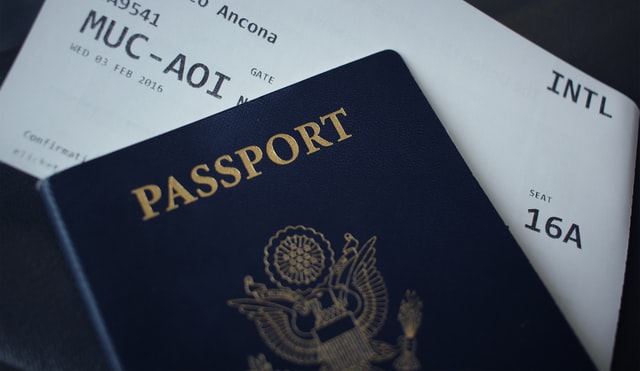Japan is well known for being one of the most advanced countries and a world leader in innovation and technology.
Japan, one of the world’s strongest nations, provides visitors from around the world with a wealth of unique experiences, no matter the purpose of travel.
The first thing you should be aware of when considering a trip to Japan is the country’s visa requirements.
Since Japan has a strict visa process, you must ensure you meet all the requirements for your application to succeed.
In this post, I will show you the Japan visa requirements for Nigerians, among other relevant information.
Table of contents
Japan Visa
To travel to Japan, you need to get a valid visa.
There are different types of Japanese tickets depending on your purpose of travel and how long you wish to stay in Japan.
Japanese keys can be grouped into three main categories, Working visas, Non-working visas and Family Related Visas.
Japan Visa Types

The following are the type of Japan visas;
- Working Visa
- Non-Working Visa
- Family Related Visas
Working Visa
Working visas are also regarded as long-stay visas.
The type of work covered by working visas are jobs requiring advanced professional knowledge or abilities, excluding simple manual labour.
A working visa cannot be obtained for positions like server, construction worker, salesperson, etc.
Some visas under this category include the following;
- Engineer
- Specialist in Humanities
- International Services Engineer
- Intra-company Transferee
- Skilled Labor
- Business Manager
- Highly-Skilled Professional
Non-Working Visa
As long as the immigration office permits them, anyone with a non-working visa may work in Japan.
There are some limits to this kind of visa, categorized as short-term stay visas.
A non-working visa holder who works a few hours per week is not permitted to work more than the stipulated hours.
Family Related Visas
Family-related visas are short-term stay visas with no restrictions on employment, allowing you to switch jobs or engage in multiple activities.
You may apply if you are a spouse or child of a Japanese national, a long-term resident, a permanent resident etc.
Japan Visa Requirements

You must submit the following documents required for your application:
- Application Form
- International Passport
- Passport Photographs
- Daily Itinerary
- Proof of Accommodation
- Proof of Financial Stability
- Invitation Letter
- Certificate of Eligibility (COE)
- Cover Letter
- Flight Itinerary
Application Form
Filling out and signing the visa application form are required in your application process.
You can fill it out electronically and print it out by downloading a copy from the Japan Ministry of Foreign Affairs website.
When you visit the Japanese Embassy or Consulate to apply, you can also obtain it there.
You must also input the following information in the form;
- Your personal information (name, passport number, nationality, employment information, etc.)
- Itinerary (date and place of arrival and departure
- Intended stay and lodging information)
- Information about the person or business that invited you to Japan
- Information about your guarantor, etc., is in the form.
If some information does not apply, you may write N/A, which means Non Applicable.
International Passport
At least two blank pages in your Passport must be available to place the visa stamps or stickers.
Your Passport must also be valid for at least another six months or more if you plan to stay for more than six months.
Additionally, you must submit photocopies of the required passport pages, such as the ones with your name, date of issuance, expiration, etc.
Passport Photographs
You also need at least two passport photographs which follow the Japanese photo requirements.
Hence, the photos must measure 4.5cm x 4.5cm, have a white background and have been taken in the last six months.
You must be staring straight ahead with a neutral facial expression, and your entire face has to be precise.
Noteworthy, your name and birthdate must be written on the back of the pictures.
Daily Itinerary
It would be best if you had an itinerary that details your daily plans while visiting Japan, including the destinations you’ll see, your planned activities, and the dates.
On the Japan Ministry of Foreign Affairs website, you can get a sample itinerary for the Japan Visa to know what it looks like.
If you’re applying for a working holiday visa, you should submit a schedule of your monthly plans for your time in Japan, detailing where you’ll be staying, what you’ll be doing for work, and other activities.
Proof of Accommodation
You might also be required to provide proof of your lodging arrangements in Japan, such as a hotel or apartment reservation.
Proof of Financial Stability
You are to submit documents showing your ability to cover your expenses for your stay in Japan.
Ensure you provide the most recent income tax returns and bank statements if you are paying for your travel.
If you have a guarantor that contributes to the cost of your stay:
- Guarantee letter.
- A recent three-month-old income certificate.
You may provide the following while applying for a student visa:
- Your income or bank statements.
- Evidence of Scholarship(if applicable).
- Evidence of financial assistance( from any individual or body). You must submit a letter of sponsorship along with your sponsor’s income documents and bank statements.
Invitation Letter
The person you visit should write you a letter of invitation outlining your relationship to them, the purpose you are visiting, and other information if you are applying for a Japanese visa to see them.
You are also required to provide a letter of invitation from the Japanese company if you are travelling on business; this document must be stamped with the company seal and include a statement of the invitation’s purpose.
Note that the Japanese Embassy, where you will apply for the Japan visa, must get a copy of the invitation letter.
In addition, provide the following records with your Japanese visa application if you are visiting friends or family:
- For family members/relatives: documents proving one’s civil status, such as birth or marriage certificates
- For friends: Photographs of you two together, invoices, call logs, and a letter outlining your friendship
Certificate of Eligibility (COE)
You require a Japan Certificate of Eligibility if you travel to Japan for purposes other than vacation, transit, business, or a brief visit.
Before you enter the country, the Japanese Immigration Services will issue you a Japan Certificate of Eligibility.
This indicates that you must already have a sponsor who can make the application on your behalf.
You must send them any pertinent supporting documentation (as listed above).
Your job, school, or spouse may serve as your sponsor, depending on the type of visa for which you are applying.
Your sponsor must send you the COE after you have received it (the procedure may take up to three months), and you can use it to apply for the Japan Visa.
Cover Letter
You must write a cover letter addressed to the Japanese Embassy.
This letter should introduce yourself, state the purpose of your travel, dates when you intend to enter and leave Japan, and a general itinerary of your stay in the country.
Flight Itinerary
It is essential to provide a complete schedule of the arrival and departure dates, flight reservation numbers, etc.
The ticket doesn’t have to be bought because your visa may be denied in the long run, and the Embassy would not bear any losses.
Japanese Visa Application Guide

A description of how to apply for a Japanese visa
- Determine the Visa Type
There are various types of Japanese visas, and the main categories have been highlighted above.
Once you have decided what you plan to do in Japan, you should pick a suitable key. - Fill out the Application Form
You can begin your Japan visa application by downloading the application form and filling it out.
Ensure that you print out the application form, sign it, and date it once you complete it.
You can also make photocopies of the Japan visa application form if needed.
Bear in mind that providing false information could ultimately result in your visa being refused. - Submit your Application
Before submitting your application, you must have booked an appointment with the Embassy.
Once that is done, visit the Japanese Embassy in Abuja and submit your application form with the other documents listed above.
You must submit your application and not through an agent, as the Embassy has no accredited travel agent.
Bear in mind that an interview is not often required, but if that is the case, you will be informed by the authorities. - Pay the Required Fees
You should proceed to pay the Japan visa fee.
The visa fee costs ₦10,700, but this is subject to change.
The Embassy only accepts cash, so you must have the exact amount ready. - Collect your Passport
Your Passport and other relevant documents can be collected after a decision has been made on your application.
You may send someone on your behalf to collect your Passport.
Still, you must provide a letter of the authorization indicating that you have authorized a specific individual to manage your Passport.
Also, such individuals must have valid IDs and must come with their visa application receipts.
Japan Visa Processing Time
Applications for a Japanese visa may take up to two weeks or more to be processed, depending on various factors.
Japan Visa Refusal
- A damaged or invalid passport
- Incomplete application
- Fake documents
- Passport photos that do not meet the requirements.
- Insufficient proof of financial ability
Conclusion
Japan is a great travel destination for anyone seeking to travel abroad.
However, if you are unsure how to approach the entire process, you can find it stressful and confusing.
Fortunately, we have covered everything you need to know, and if you follow our guidance, your application process will have no hitches.
Let me know if you have any questions or need further clarification. I would love to assist you.
You can watch my videos on the Studentship YouTube Channel by clicking here.
Join my Facebook Group, Like my Facebook Page or Follow Me on WhatsApp for more interactive discussions.
